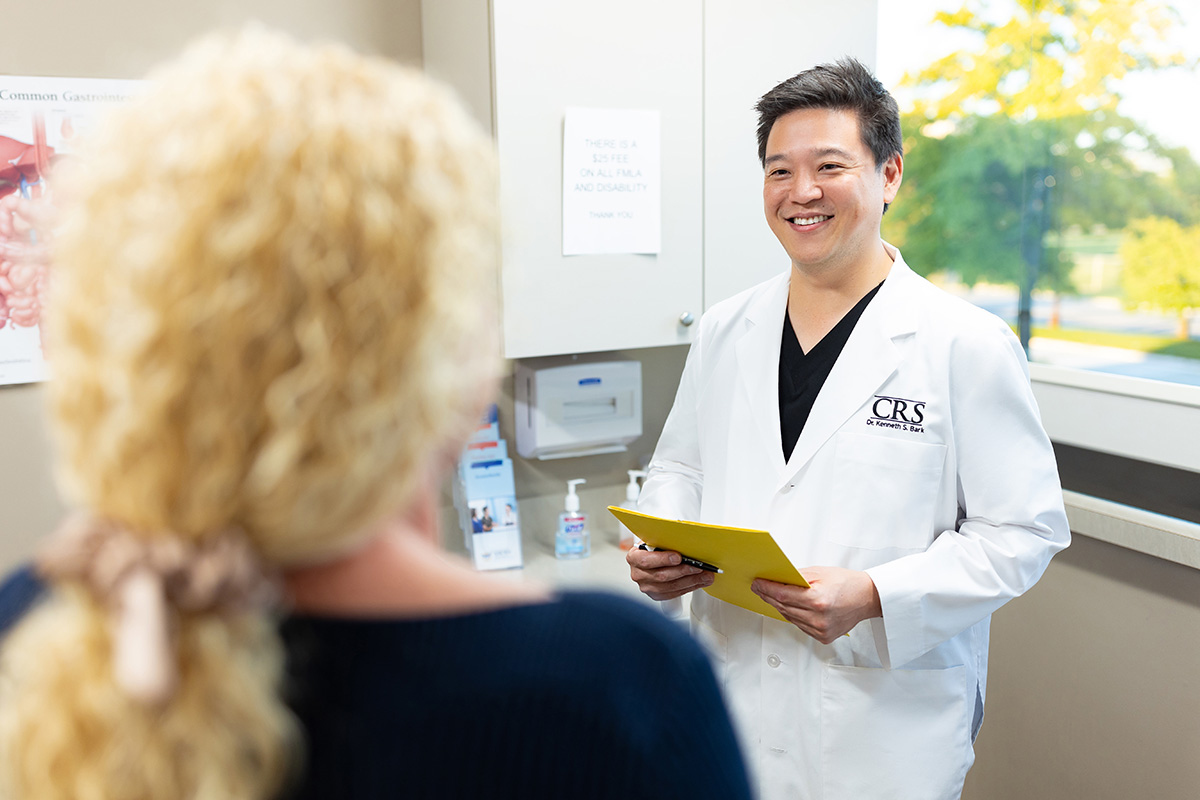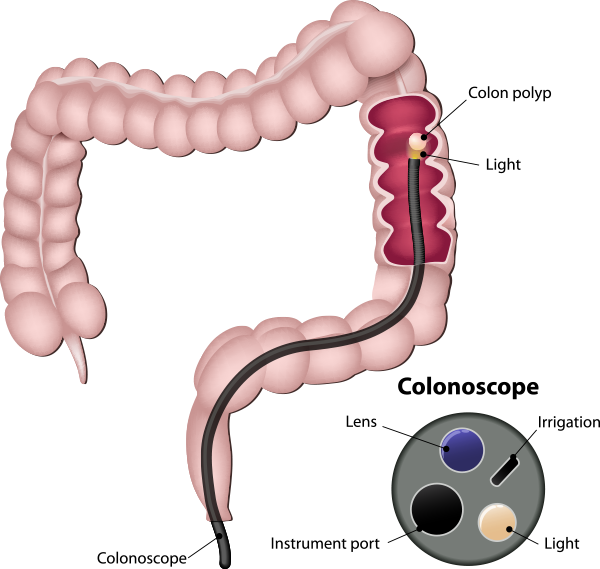Colonoscopy
An exam of the full colon & rectum
An exam of the full colon & rectum
A colonoscopy is both diagnostic and therapeutic. At the same time that it diagnoses colon and rectal problems it also provides therapy by removing polyps. Colonoscopy is performed in an outpatient setting, employing a long, flexible, tubular instrument utilizing sedation. There is minimal discomfort. In general, a colonoscopy should be performed every 5-10 years to provide effective screening for colorectal cancer.
Most colorectal cancer starts as a small non-cancerous growth called a polyp. As polyps grow, there is an increasing chance that they will turn into cancer. If the polyp is removed at the time of colonoscopy, then this potential site of cancer is prevented.
Although colorectal cancer is common, it is often silent – most patients report no symptoms prior to its diagnosis. When symptoms do appear – rectal bleeding, weight loss, change in bowel habits, abdominal pain – it’s usually a sign that the cancer is in a more advanced stage. The cure rates for patients without any symptoms are much higher than those with symptoms – which is why it’s so important to have a screening procedure such as colonoscopy performed.

Prior to a colonoscopy, your bowel must first be thoroughly cleared of all residue. This cleansing process begins one to two days before the exam by following a designated prep sheet. If you are scheduled to have a colonoscopy with us, click on the link below to print out a copy of the prep sheet.
Download our colonoscopy prep handoutA colonoscopy usually takes less than 15 to 20 minutes. There is minimal pain, since mild sedation is given during the procedure. There may be slight discomfort following the colonoscopy, due to retained air. Once the residual gas is expelled, however, the discomfort goes away and most patients resume a regular diet the very same day.
Most people do no feel pain with colonoscopy however, some may feel some bloating and discomfort due to the amount of air that is used during a colonoscopy. Most people don’t remember the procedure itself and most feel OK afterwards aside from the effects of the sedation medications.
Most people feel well after their colonoscopy but you are instructed to take it easy the rest of the day and told not to drive for the rest of the day due to medications used during the procedure that might still affect you. Most people are free to return to normal activities the following day.
For most people, the preparation is the worst part as this is the portion that cleans out your colon. We usually use a gatorade and miralax preparation. In most cases, the medications can all be bought over the counter. Specific instructions will be given by the office.
